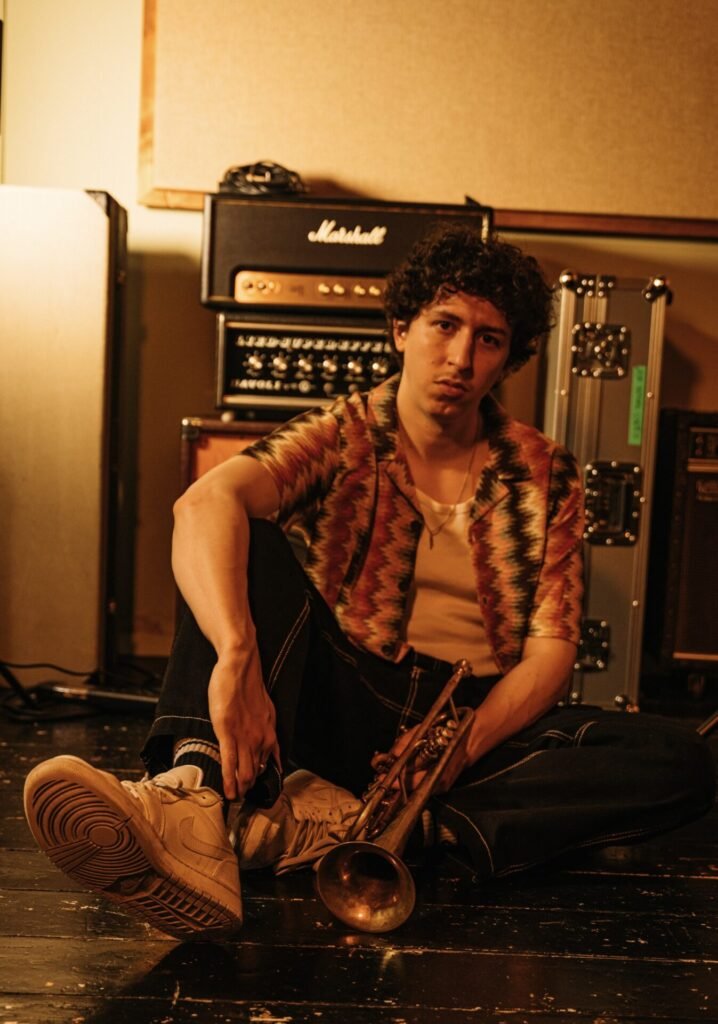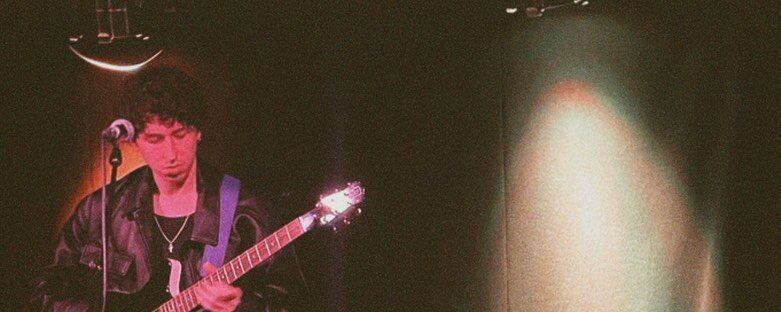South London-based producer and musician Monterey J. His music combines jazz harmony, hip-hop beats, and funk to produce an original blend of grooves. Check out the exclusive interview below:

1. Can you tell us a bit about where you come from and how it all got started?
MONTEREY J: I was born just outside of Venice, Italy. I don’t really come from a musical family, my dad used to play guitar and has a surprisingly good ear but that’s pretty much it. My parents still decided to sign me up for some piano classes when I was 6 and that was the start of my musical journey. Fast forward 12 years, I decided to move to London to pursue a career in music.
2. Do you feel that your music is giving you back just as much fulfillment as the amount of work you are putting into it or are you expecting something more, or different in the future?
MONTEREY J: I set impossibly high expectations for my career so I don’t think I’m ever fully satisfied, although I’m trying to work on that. As I move along, I’m also finding out what I really want from this. I’ve understood that I’m not interested in how many people listen to what I make but rather in their genuine appreciation of my work. So far, the biggest fulfilment has been artists reaching out asking me to produce a song for them, I see that type of faith as a blessing.
3. Who were your first and strongest musical influences and why the name ‘MONTEREY J?
MONTEREY J: I would say Stevie Wonder, Prince, D’Angelo, J Dilla and many many others. Some of these were played in my household since I was very young, others I found later in life. Mysticisms aside, the main reason why I chose the name Monterey J was that I liked the way it looked and sounded. The “J” is part homage to Dilla, part leftover of the name John, which is the English translation of my name. When I first moved to London I was shy about my Italian roots and often introduced myself as John; with time, I have learned to embrace my real name but I’ve kept the J as a symbol of my past insecurities.
4. What do you feel are the key elements in your music that should resonate with listeners, and how would you personally describe your sound?
MONTEREY J: When people ask me what genre I make I stutter. These days I describe it as a derivation of funk and soul with some jazz and hip hop elements. I feel like what draws people into my music world is that it’s a big mashup of influences, styles and themes where there can be a little something for everyone.

5. Creative work in a studio or home environment, or interaction with a live audience? Which of these two options excites you most, and why?
MONTEREY J: I just love being in the studio, it’s what music is all about for me, it’s where I feel I can do my best. I just love the writing/production process, especially if it involves collaborating with other artists. Live shows are fun but they ultimately feel like more of a hassle for me, I’m looking forward to changing my mind in the future.
6. Did you have any formal training or are you self-taught?
MONTEREY J: I had several teachers for different instruments while growing up in Italy. I feel like being a self-taught musician is often glamorised but I wouldn’t trade it for what my teachers gave me. As of now, I still study jazz piano which is something that heavily informs my musical style.
7. For most artists, originality is first preceded by a phase of learning and, often, emulating others. What was this like for you? How would you describe your own development as an artist and music maker, and the transition towards your own style, which is known as R&B?
MONTEREY J: I have never been scared of emulation when it consists of shaping an idea into your own. Jazz and Hip Hop have also taught me the beauty of quoting or sampling those who came before us, giving new life to old ideas. With this in mind, I don’t want to make music seeking originality for its own sake but rather make the music my heart wants to make with complete freedom from doubt.
8. What’s your view on the role and function of music as political, cultural, spiritual, and/or social vehicles – and do you try and affront any of these themes in your work, or are you purely interested in music as an expression of technical artistry, personal narrative, and entertainment?
MONTEREY J: As of now, my music is an expression of my journey and the messages my struggles have taught me. The themes I’ve expressed in music so far could be summed up into a search for love and acceptance, turning struggles of identity and purpose into lessons. I don’t feel like my social/political voice is fully developed yet but I’m looking forward to seeing if that happens in the future.
9. Could you describe your creative processes? How do usually start, and go about shaping ideas into a completed song? Do you usually start with a tune, a beat, or a narrative in your head? And do you collaborate with others in this process?
MONTEREY J: I either start with a drum beat or a chord progression and I think that either option yields different results. I always try to paint a full picture immediately, recording all the basic elements and instruments of a song on the spot. I always postpone writing vocals until much later in the process. Lately, I’ve been collaborating with other South London artists and it has honestly breathed new life into my creative process.
10. With social media having a heavy impact on our lives and the music business in general, how do you handle criticism, haters, and/or naysayers in general? Is it something you pay attention to, or simply ignore?
MONTEREY J: To be honest I’m quite bad with it, I’m very sensitive about my music, especially if the criticism is directed towards conscious production choices. However, I really do appreciate hearing people’s opinions of my songs, like if somebody says my music did or didn’t make them feel a certain way, that’s quite deep for me.
KEEP IN TOUCH:
INSTAGRAM | SPOTIFY | TIKTOK | WEBSITE | YOUTUBE

